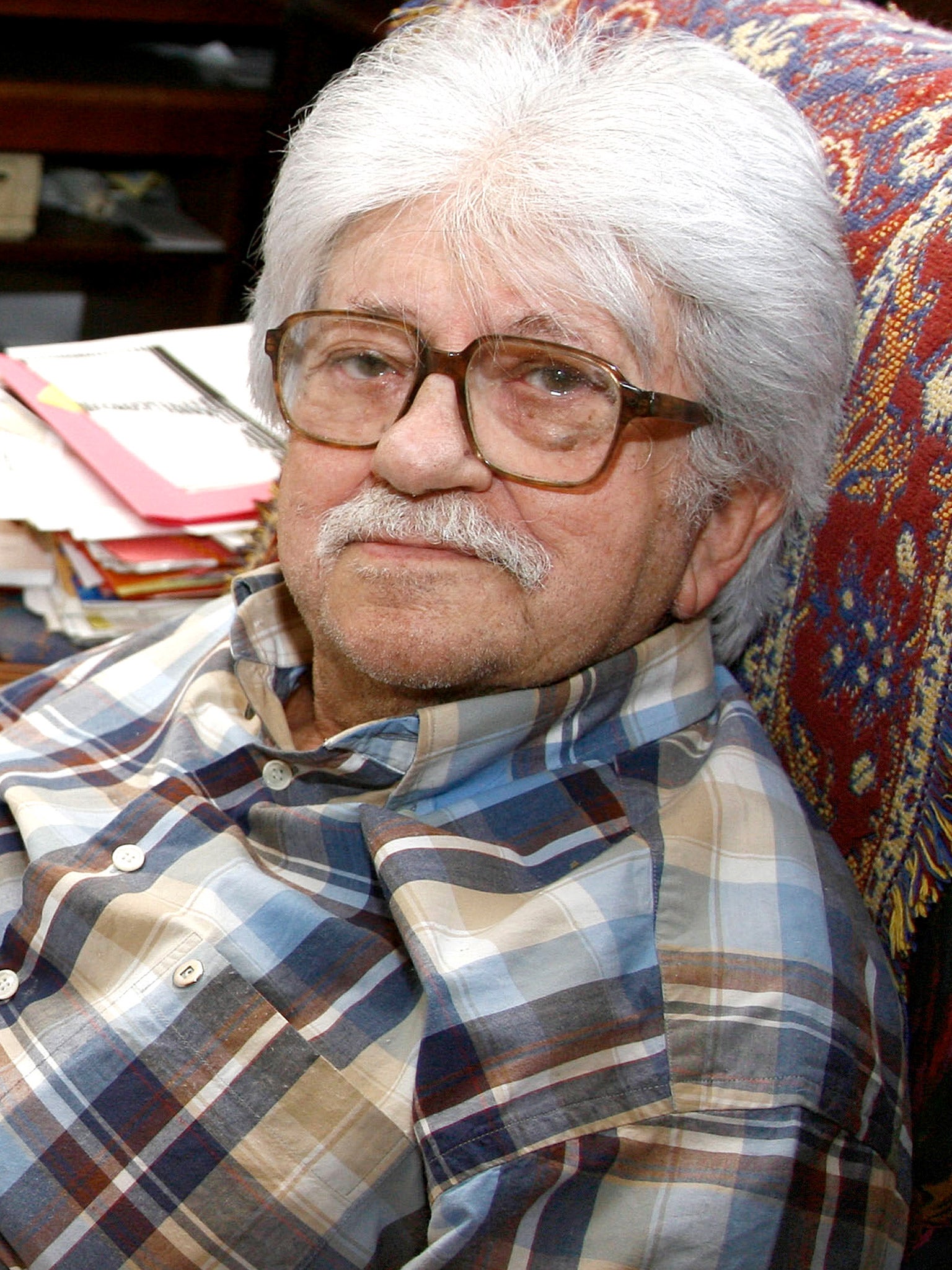
Your support helps us to tell the story
From reproductive rights to climate change to Big Tech, The Independent is on the ground when the story is developing. Whether it's investigating the financials of Elon Musk's pro-Trump PAC or producing our latest documentary, 'The A Word', which shines a light on the American women fighting for reproductive rights, we know how important it is to parse out the facts from the messaging.
At such a critical moment in US history, we need reporters on the ground. Your donation allows us to keep sending journalists to speak to both sides of the story.
The Independent is trusted by Americans across the entire political spectrum. And unlike many other quality news outlets, we choose not to lock Americans out of our reporting and analysis with paywalls. We believe quality journalism should be available to everyone, paid for by those who can afford it.
Your support makes all the difference.Michel Slitinsky was a wartime resister whose research was instrumental in the prosecution of Maurice Papon. Papon was a civil servant who served in the Vichy regime and played a key role in sending French Jews to Nazi death camps.
Michel Slitinsky was born in Bordeaux in 1925, the son of Jewish parents. In 1912 the family had sought refuge in France, leaving their Ukrainian homeland, which was part of the Czarist empire. Under the Czarist regime Jews faced a precarious existence, while France was seen as the land of liberty. After living in Paris the family moved to Bordeaux. The family opened a shop and all went well until the fall of France in 1940.
Last-minute diplomacy between Britain and France, aimed at keeping France in the war, failed and power was handed over to the widely revered "Victor of Verdun" in 1916, Marshal Philippe Pétain. He promised an "honourable" end to the hostilities with Nazi Germany. Instead, much of the country was occupied and he established a new regime at Vichy to rescue France from the "decadence" of the pre-war Third Republic. A purge of the political Left, the Jews, freemasons, and other "undesirables", followed. All Jews became second-class citizens.
Most of France was hit hard by the German Occupation from 1940 to 1944, but in Bordeaux the wine business was thriving. Yet the internment camps were filling. Police raids took place and, by 1942, the camps were full of immigrant Jews and those deemed subversive.
Slitinsky's father Abraham was arrested in October of that year by the French police and held in the notorious Drancy internment camp outside Paris before being handed over to the Germans. He was one of almost 76,000 deported Jews who did not survive; in his case he was gassed in Auschwitz. His wife Esther hid in a cellar for three years while Michel, then 17, escaped on the night of the raid over the roofs to safety. He joined the network of resistance which became part of the maquis of Auvergne.
After the liberation Slitinsky took up a commercial career, but he was determined to research and to write up the history of the Resistance in the Gironde, collecting evidence which was published in two books, in 1969 and 1972. His last book, La Nuit des Evasions [The Night of Escapes], appeared in 2007.
He also felt passionately about exposing the Vichyites. One particular target was Maurice Papon, who had been in charge of the police in Bordeaux during the war. After the war Papon had prospered, being appointed Chief of Police in Paris in 1958. He became notorious for his repression of peaceful demonstrators, especially in 1961.
Then in 1981 details about his Vichy past emerged, when the satirical and investigative newspaper Le Canard Enchaîné published documents, discovered by Michel Bergès, a young French historian, signed by Papon that revealed his responsibility for the deportation of 1,690 Bordeaux Jews to Drancy from 1942 to 1944. After a long investigation, Papon's trial started in 1995. He argued that he had had no choice, that he did not know about the nature of the Nazi camps, and that he had tried to save Jews – including Slitinsky's sister, who had been arrested at the same time as her father. She was released in December 1942.
Papon produced written evidence that he had intervened, successfully, on her behalf. In 1998 he was convicted of crimes against humanity. The highest-ranking French civilian ever to be brought to justice for Nazi war crimes, he was sentenced to 10 years' imprisonment but walked free in September 2003, because of old age and poor health.
"Obviously there is a double standard when it comes to justice in France," Slitinsky, President of the Association of Families of Victims of Deportation in the Bordeaux region, commented. Papon, he said, "walked out of prison ... looking not at all like someone who's on his deathbed. This is a revolting decision." Papon died in February 2007 aged 96.
Michel Slitinsky was buried in the Jewish cemetery in Bordeaux – "A great man," said the Mayor of Bordeaux and former Prime Minister, Alain Juppé. "With the disappearance of Michel Slitinsky a great voice of the resistance and of memory has gone." President Hollande called Slitinsky a "tireless defender of justice."
David Childs
Michel Slitinsky, résistant: born Bordeaux 5 February 1925; married (two children); died Bordeaux 8 December 2012.
Join our commenting forum
Join thought-provoking conversations, follow other Independent readers and see their replies
Comments